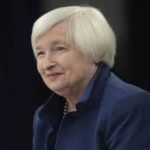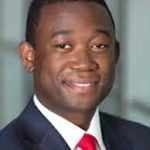Check out the website: https://lenspoliticalnotes.com Look at the recent Political Notes and Len’s Letters on the website. Political Note #341 US and the World, Part 1 – Blinken, Thomas-Greenfield, and Kerry, Political Note #342 US and the World, Part 2 – Mayorkas, Haines, and Sullivan, Political Note #343 Joe Biden Waiting his Turn
Political Note #344 Joe Biden’s Domestic Economy
2020 General election – Getting ready to govern

As Joe Biden announces appointments and nominees some themes develop.
- Joe Biden is not appointing a Team of Rivals. Doris Kearns Goodwin’s book Team of Rivals: The Political Genius of Abraham Lincoln praised Lincoln for appointing rivals for the1860 Republican nomination for President. Joe Biden is not appointing Elizabeth Warren or Bernie Sanders to the cabinet – Senators who were not only Joe Biden’s rivals for the 2020 nomination, but whose resignation from the Cabinet, should that happen out of dissatisfaction at some point in the future, would shake Biden’s presidency.
- Joe Biden is appointing experienced professionals. The people he is appointing have been there before. They know the agencies they are leading. They know what Joe Biden’s agenda is. They understand their own agendas. They know the order of those things. These appointments are a comfort – government is in the hands of people who know what they are doing.
- Joe Biden is appointing a lot of women. Except for the slightest murmur of concern about his all-woman communications team that he might be making communications “women’s work,” this tendency in his appointments is earning praise from progressives.
- Joe Biden’s is appointing a lot of minorities. Not enough according to those who speak on behalf of African Americans. Not enough according to those who speak on behalf of Hispanic Americans. Not enough according to those who speak on behalf of Native Americans.
- Joe Biden has not yet offended the Democratic Party’s left wing. He’s from the center of the Democratic Party. Over the course of his career, Joe Biden has always found himself at the center of the Democratic Party. He’s not appointing or nominating the first choice of those on the left of the Democratic Party, but he is naming people who are acceptable.
These themes play out in the appointments for Joe Biden’s economic team – with one possible exception, which we will get to.
Secretary of the Treasury

Janet Yellen
Anyone who missed Stephen Colbert’s application of the musical about the first Treasury Secretary Alexander Hamilton to Janet Yellen, the first female Treasury Secretary missed a treat.
The Treasury was one of the originally created Cabinet Departments. It was intended to create the US currency, collect taxes, and fulfill spending obligations. The Treasury still does those things as part of managing the country’s finances and, now, its debt. The Treasury supervises banks, enforces financial and tax laws, and publishes reports and provides advice as appropriate.
Janet Yellen was vice chair of the Federal Reserve from 2010 to 2014, chair of the Federal Reserve from 2014 to 2018. The Federal Reserve is the central banking system of the United States. Its seven-member, presidentially-appointed governing body is the Reserve Board, each member serving a non-renewable 14 year term. The Chair and Vice Chair are included about the fourteen and are appointed to their roles for renewable four year terms. In addition to her academic career at Harvard, the London School of Economics, and primarily as the University of California, Berkeley, Janet Yellen had first-hand knowledge of the oversight of the US economy.
Janet Yellen grew up in Bay Ridge, Brooklyn in a Jewish family that had immigrated to the US from Poland. Her mother taught elementary school; her father was a family doctor. She was the valedictorian at Fort Hamilton High School, a summa cum laude graduate of Brown, and has a PhD from Yale. Her dissertation supervisors were Joseph Stiglitz, Nobel Prize winner generally considered leftist, and James Tobin, widely respected Keynesian economist. Her husband is a Nobel Prize winning economist who shared the Nobel with Joseph Stiglitz and one other.
Welcomed by conservatives? A 2014 column in Forbes magazine was very critical of her role in the Fed supporting increased employment, but the magazine’s response to her nomination in 2020 was to say she was for regulation, but not viewed by Wall Street as a major threat to big business. The same magazine quotes Democratic Labor Secretary Robert Reich as saying she may not be Senator Warren but she’s certainly not from Wall Street.
That’s a perfect score for Joe Biden. Are both views accurate? As Fed chair, she dismantled some of the steps taken to deal with the financial crisis of 2008, saying they were no longer necessary. She maintained job growth, in part, by keeping interest rates low. Donald Trump, perhaps remembering Paul Volker, refused to reappoint her as Fed Chair. He allowed himself to be quoted saying she was too short to be a Fed Chair.
Deputy Secretary of the Treasury

Adewale Ayedamo
President of the Obama Foundation, Chief of Staff of the Consumer Protection Bureau under Elizabeth Warren (immediately after serving as Deputy Executive Secretary to Tim Geithner at Treasury), the principal negotiator for a portion of the Trans Pacific Partnership for which Joe Biden was the self-described principal advocate, Adewale (Wally) Ayedamo touches a lot of bases. If you are weighing his relative progressivism against any relative conservative, you might balance his work with the Consumer Protection Bureau against two years working at BlackRock, the world’s largest asset manager. He also has a John Kerry connection. As a twenty-three year old, he was John Kerry’s Director of African American outreach. (No matter how talented a law student, Wally Ayedamo’s appointment is an indicator of one of the things wrong with Kerry’s presidential campaign.)
Wally Ayedamo was born in Nigeria in 1981, came with his family to the US as an infant, and grew up in Rialto, CA (south, but inland), in a family that managed through difficult times, but did not prosper. His mother was a nurse, his dad was a teacher. He has a BA from University of California, Berkeley (Did he take a course with Janet Yellen there? Did he ever meet her there?), and has a JD from Yale. His earliest work was at the Brookings Institution working on the Hamilton Project, an examination of ways to strengthen the American economy while increasing opportunity.
Consider the following three agencies that are members of the White House: The NEC, the CEA, and the OMB.
The National Economic Council is a forum for providing economic advice to the President. The NEC ensures that policy advice is coordinated, consistent with the President’s economic goals, and policy implementation is consistent with those goals as well. The NEC has a Director who reports to the President and is confirmed by the Senate, A typical composition would include the Secretaries of State, Treasury, Agriculture, Commerce, Labor, Housing and Urban Development, Transportation, Energy, and Health and Human Services, and the Chair of the CEA. Other senior figures in an administration may participate regularly or on an ad hoc basis as the President directs. The Chair of the NEC has a staff of policy specialists who assist in creating the President’s economic policy.
The Council of Economic Advisors has three members. Its chair, who reports to the President, is nominated by the President and confirmed by the Senate. The other two members are appointed by the President without confirmation. The CEA has a principal responsibility – the public submission every February of the annual Economic Report of the President. The Report describes the economic activities of the past year and the President’s economic goals and economic projections for the upcoming year. The CEA relies on a staff of about twenty economists – most of them assigned from other agencies in the government or working while on leave from universities. The CEA may also submit to the public, on behalf of the President, various other brief reports about issues of importance.
The Office of Management and Budget produces a budget that reflects the policy goals outlined by the NEC while being guided by the conditions and projections identified by the CEA. OMB also supervises the administration of the agencies of the executive branch, evaluating the effectiveness of each agency’s programs, policies, and procedures, assessing competing funding demands among agencies, and setting funding priorities. OMB ensures that agency reports, rules, testimony, and proposed legislation are consistent with the president’s budget and administration policies. This relatively large entity has a Director, two Deputy Directors, an Executive Associate Director and fourteen Offices.
National Economic Council (NEC)

Brian Deese
After the 2016 election, Brian Deese spent 7 months as a Senior Fellow at the Kennedy School at Harvard. Then he got a job as the global Head of Sustainable Investing for BlackRock, the largest asset management firm in the world. That his work was to incorporate environmental considerations into investments at BlackRock has not protected him from criticisms from the left. Before the 2016 election, he worked for Barack Obama in the White House. The former economic policy advisor to the Hillary Clinton campaign, he then had a similar role in the Obama campaign. Eventually he became a special assistant to President Obama and a staffer for the NEC. Appointed Deputy Director of the NEC, he advocated for saving the auto industry. He was shifted to the OMB as Deputy Director and, briefly, Acting Director before replacing John Podesta as Counselor and then Senior Advisor to the President. Brian Deese was born and brought up in Belmont, Massachusetts, has a BA from Middlebury, and a JD from Yale.
Chair, Council of Economic Advisors. (CEA)

Cecilia Rouse
Cecilia Rouse is Dean of Princeton’s School of Public and International Affairs. She grew up in Del Mar California. Her dad was a physicist; her mom a school psychologist. Both siblings are academics. She has a BA and a PhD in economics from Harvard. She joined the faculty at Princeton after completing her doctorate. Both her siblings are academics, one of them at Princeton. Her husband is Toni Morrison’s son. At Princeton, her best known popular research was about bias in orchestra auditions, leading to widespread use of “blind” auditions. In addition to research in labor economics, she had had various leadership positions. She served as a board member for MRDC, a non-profit policy research organization focused on more effective programs and policies for helping people move out of poverty. She also served as a director of T. Rowe Price’s equity mutual funds.
Office of Management and Budget (OMB)

Neera Tanden
There is a theory. Joe Biden nominated Neera Tanden so the Republicans could have one nomination to reject. I have a different theory. Joe Biden’s nomination of Neera Tanden is a diversity nomination. Not so much because Neera Tanden’s mom was a South Asian Indian immigrant to the United States. Not even because she was a single mom who relied on food stamps, housing support, and other social services to raise Neera who eventually got her BA from UCLA and a JD from Yale. Joe Biden’s diversity nomination of Neera Tanden is a selection of someone who is not bland. She is tough enough to be feared – not necessarily a bad quality for the person in charge of OMB.
Neera Tanden has been President and/or COO of the Center for American Progress for ten years. Before that she was a Senior Advisor at Health and Human Services and an important figure in the development of the Affordable Care Act. This was after serving as Policy Director for Hillary Clinton’s Presidential Campaign.
She has two sets of fierce opponents. One set if from the Bernie Sanders campaign. She’s been accused of punching Faiz Shakir, the editor of ThinkProgress and later head of Bernie Sanders’ campaign after he asked Hillary Clinton about her support for the Iraq War. Combine that tactile encourter with contempt expressed via tweet for the Democrats’ most radical left, she’s got some enemies there.
Republican Senators have trouble making distinctions. For them, she is the radical left. Her years with the Center for American Progress were spent working to prevent Republicans from depriving the American poor of programs that protect them; that give them a chance to “climb the ladder of success” (according to CAP’s statement of values). She has been caustic about Republicans (Though, she was not the first to use the term “Moscow Mitch”). Republicans seem to think that she is a radical because she is mean to them.
